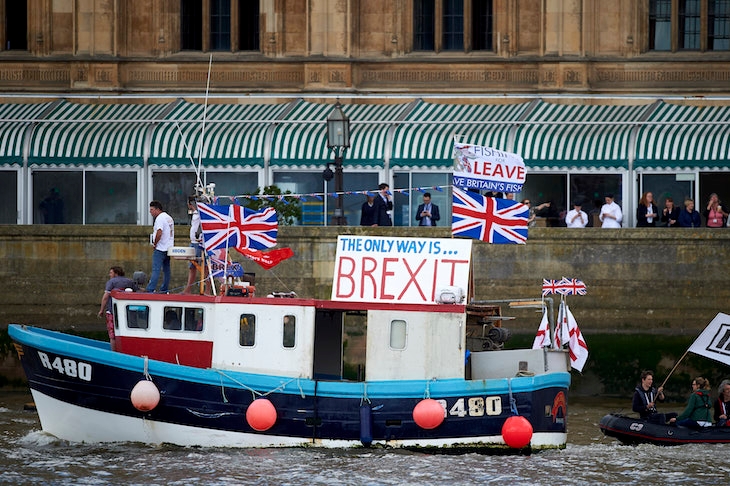I voted Remain last year for two reasons. First, however irritating I found some aspects of the EU, I could not vote for the chaos I believed would follow a Leave victory. From the accession of Theresa May to the night of the general election, that looked like an excess of pessimism; now it looks like wise foresight. The second prong was an analysis of my own and my neighbours’ economic circumstances: in what sense was EU membership actually making us worse off? In my own case, not at all; local shops, hospitality outlets and tourist attractions, likewise. Subsidised hill farmers and fatter farming cats on the flatlands? Not really, even though broader frustration with Brussels made many of them vocal Brexiteers. No, I would have had to travel 35 miles to Whitby or Filey on the Yorkshire coast to find a group whose livelihood had clearly been damaged by decades of over-regulation and unfair competition from Europe. I mean, of course, the fishermen, and I welcome a swift move by the new environment secretary, Michael Gove, to scrap the 53-year-old London Fisheries Convention — which allows our near European neighbours to fish in our inshore waters — as a preliminary to walking away from the Common Fisheries Policy that allows all EU members to fish between 12 and 200 miles from our coastline. The UN Convention on which we now hope to rely asserts exclusive fishing rights within 200 miles (or to the mid-point of any channel between two countries) and even if we no longer have much of a fisheries protection fleet, an important principle will have been established. Because you can bet your boots that in tit-for-tat Brexit deal-making, a handy little counter like our diminished fisheries might otherwise be all too easily traded away. But surely that’s not how it’s going to be? The European Council’s own Article 50 guidelines expressly exclude ‘cherry-picking’ or any ‘sector-by-sector approach’.Oh yes? ‘A City of London delegation will head to Brussels this week with a secret blueprint for a post-Brexit free-trade deal on financial services,’ says the FT, while ‘ministers push to keep EU pharma ties after Brexit.’ Coming the other way, a convoy of German car factory bosses who have read Deloitte’s report telling them a hard-Brexit reversion to WTO tariffs on cars and components could cost their industry 18,000 jobs and hit them as hard as the 2008 financial crisis. Sector-by-sector trade-offs will surely in the end be at the heart of this negotiation, but we should worry least about globalised sectors that already have high levels of cross-border flexibility. That’s not a description of our fishing industry, which has been crippled by Europe; its recovery would be a tangible measure of Brexit success and I’m glad Gove is moving early to protect it.
 Martin Vander Weyer
Martin Vander Weyer
Let’s make sure our fishermen are protected against Brexit tit-for-tat
Also in Any Other Business: the Bank of England pay strike and why Hong Kong is still buzzing

issue 08 July 2017




Comments